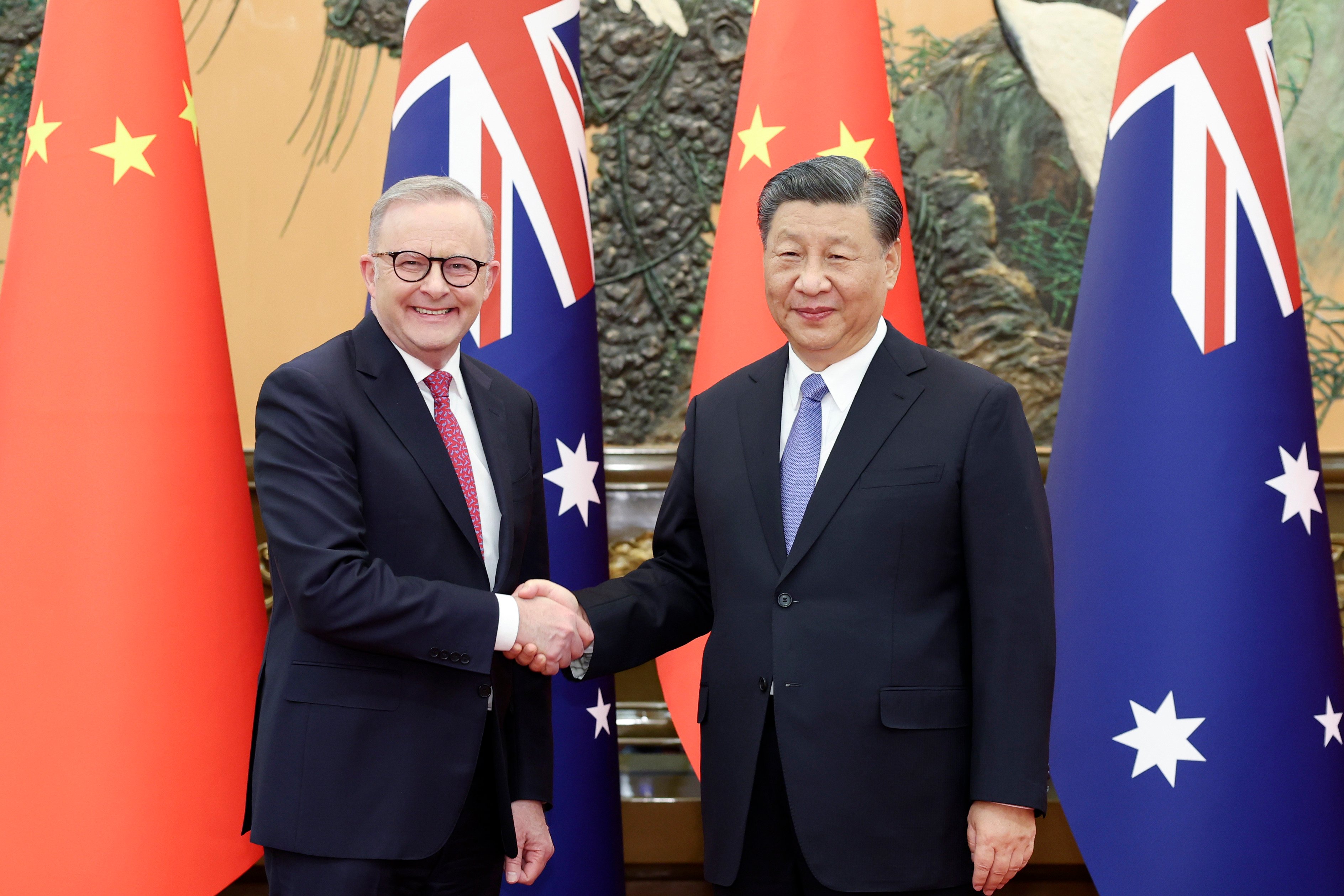Australia’s Albanese to meet China’s Xi in Beijing this summer: source
The Australian leader aims to ‘stabilise’ the relationship with China amid the turbulence unleashed by US tariffs, a source told the Post

Australian Prime Minister Anthony Albanese is set to become the latest world leader to travel to Beijing for trade talks, as countries around the world scramble to navigate the turbulence unleashed by US President Donald Trump’s tariff policies.
The Australian leader is expected to arrive in the Chinese capital in July or August, a source with knowledge of the situation told the Post on condition of anonymity, with the European Union also scheduled to hold a crunch summit with China during the same period.
“Albanese is expecting to meet with [President] Xi Jinping during his visit,” the source said.
Since he was first elected in 2022, Albanese has worked to thaw the economic tensions with China caused by his more hawkish predecessors, paving the way for Beijing to ease import curbs on Australian coal, wine, lobster and other goods.
Engagement with China is expected to remain a priority for Albanese during his second term, after his Labor Party won a decisive victory over the opposition Liberal-National Coalition in Australia’s federal election last month.
“It’s a trip to engage with Australia’s largest trading partner,” the source said. “Australian people voted for Albanese again because he can stabilise the Australia-China relationship.”
China’s Ministry of Foreign Affairs did not immediately respond to the Post’s request for comment.
Australia’s Department of the Prime Minister and Cabinet said it “does not comment on potential official visits and events until a formal announcement is made”.
We don’t want to do less business with China; we want to do more business with ChinaDon Farrell, Australian trade minister
The talks come at a crucial moment in the two countries’ relationship, as Australia strives to navigate rising tensions between China – its largest trading partner – and the United States, a key security ally.
Australia has been affected by the 10 per cent “baseline” tariff that the US imposed on dozens of countries in April, but it has so far not been hit by Washington’s steeper so-called “reciprocal” tariffs.
The “reciprocal” duties – which Trump announced in April before freezing days later – are due to come back into effect in early July.
No exact date for the Australian leader’s trip has yet been finalised, and there are possibilities of last-minute changes, the source said.
The European Union and China, meanwhile, have confirmed plans to hold a summit in Beijing in late July, as the bloc attempts to ease tensions with China and find common ground over how to handle the US’ protectionist policies.
China remains by far Australia’s largest export market, despite the country’s exports to the Chinese market dipping slightly to A$196 billion (US$127 billion) last year, a fall of 10.2 per cent year on year, according to figures from the Australian Bureau of Statistics.
The US was Australia’s fourth-largest export market in 2024, with total exports increasing 3.3 per cent year on year to reach A$40.1 billion.
Australia’s trade minister, Don Farrell, indicated in an interview with the Australian Financial Review in May that Canberra was reluctant to “rebalance” its trade flows away from China as a result of Trump’s tariffs, because “Australia’s export trade with China is worth much more than our trade with the US”.
“China is our largest trading partner,” Farrell added. “We don’t want to do less business with China; we want to do more business with China.”
However, the fate of Darwin Port in northern Australia could become a source of friction between Canberra and Beijing, with Reuters reporting on May 27 that the American private equity firm Cerberus had shown interest in acquiring the lease for the port from the Chinese company Landbridge.
On May 28, Albanese told reporters that he had noted “this speculation” and reiterated that the government wanted to see the port “in Australian hands”.
“Even leaving aside Beijing’s reaction, given that the US is taking economic policy actions plainly not in Australia’s interests, I think the prime minister genuinely would much prefer the asset is held by an Australian entity,” said James Laurenceson, director of the Australia-China Relations Institute at the University of Technology in Sydney.
“Accordingly, I think the government will buy as much time as it possibly can politically in the hope that a domestic investor will emerge,” he added.